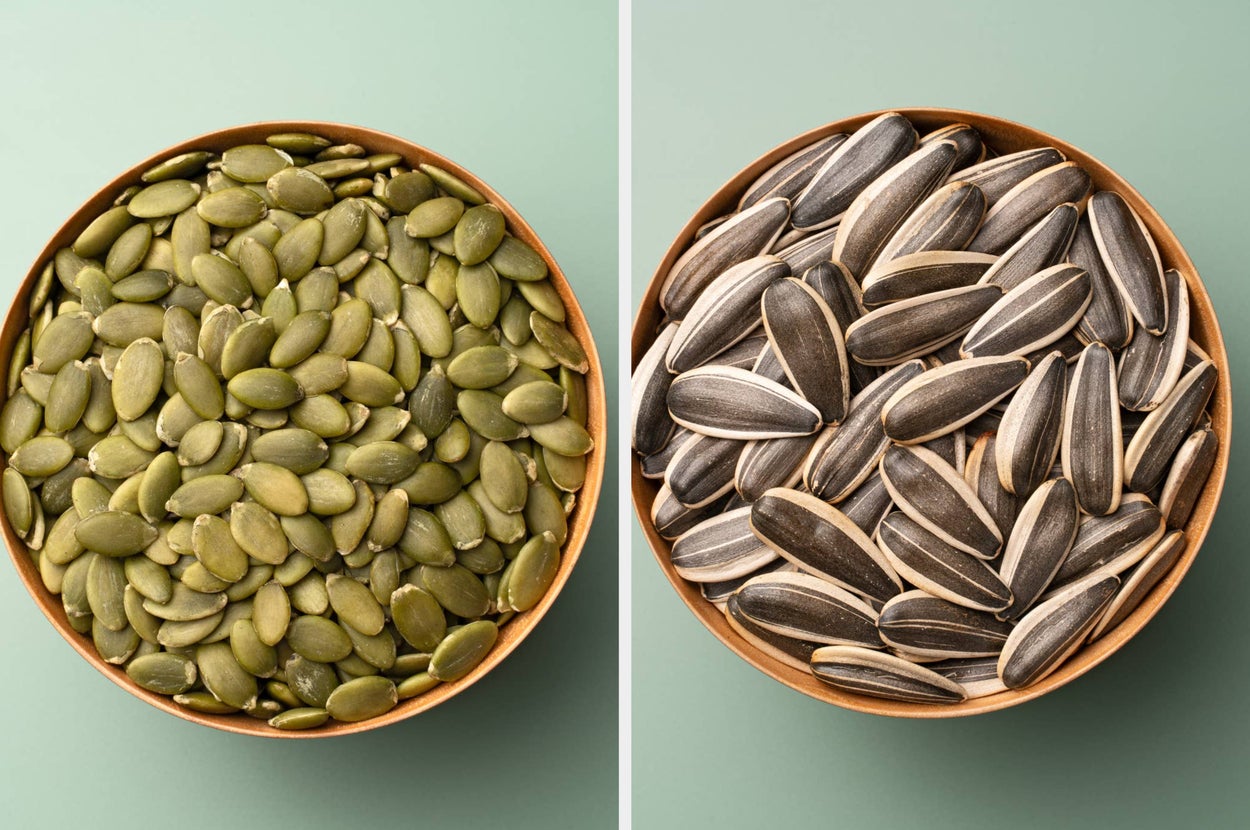When it comes to snacking, it’s no secret that chips and candy bars can negatively impact our health. Instead, consider a nutritious alternative: nuts and seeds. These bite-sized powerhouses are rich in fiber, healthy fats, and protein, making them a smart choice for on-the-go munching.
However, you may have heard conflicting advice about different types of nuts, with some being deemed healthier than others. To help clarify the best options for various health goals, we consulted nutrition experts for their top recommendations on unsalted nuts and seeds that provide essential nutrients.
Nuts for Women’s Health
Pumpkin seeds are highly regarded for their beneficial nutrient profile, particularly for women. According to Claire Rifkin, a registered dietitian and founder of Claire Rifkin Nutrition, pumpkin seeds are particularly high in magnesium, a mineral vital for preventing osteoporosis in women.
Rifkin emphasizes, “The pumpkin seeds also have a good amount of zinc content. Zinc plays a role in regulating the menstrual cycle by participating in the synthesis, storage, and release of reproductive hormones such as follicle-stimulating hormone (FSH) and luteinizing hormone (LH).” She also notes the importance of zinc during pregnancy for DNA synthesis, crucial for fetal development.
Another stellar choice highlighted by Rifkin is Brazil nuts, thanks to their high selenium content, which she points out is important for menstrual regularity. “You can meet your daily selenium needs by eating just two nuts a day,” she adds.
Nuts for Weight Loss
For those focused on weight loss, sunflower seeds shine as a top option. Courtney Pelitera, a registered dietitian specializing in sports and wellness nutrition, explains that compared to other nuts, sunflower seeds contain fewer calories and less fat. “They provide a good source of phosphorus, which aids in the growth and repair of cells,” she mentions.
Hemp seeds are also recommended for their rich nutritional profile, offering 10 grams of protein in just three tablespoons, along with heart-healthy omega-3 fatty acids. “This is the perfect combination to keep you feeling satisfied and full for longer,” says Kaytee Hadley, a functional medicine dietitian.
Peanuts, known for their affordability, provide a sense of fullness due to their fiber and protein content. Lena Bakovic, a registered dietitian, notes, “Peanuts also contain antioxidants such as flavonoids, which work to scavenge free radicals and potentially protect against cancer.”
Cashews are another delicious option, packed with protein and healthy fats, helping to curb hunger. Bakovic describes them as a creamy nut that can be used in various recipes and turned into plant-based milk.
Nuts for Blood Sugar Management
Pistachios are celebrated for their nutritional benefits related to blood sugar management. As noted by Toby Smithson, a certified diabetes educator, these nuts are high in fiber and protein while being low in calories: “The act of shelling pistachios can help instill mindfulness in our eating,” she adds.
Megan Hilbert, a registered dietitian, highlights hazelnuts for their rich content of vitamin B6, phosphorus, potassium, and zinc, essential for energy metabolism and blood pressure regulation. “Some research shows that oleic acid, abundant in these nuts, can improve insulin sensitivity,” she states, reinforcing its benefits for blood sugar regulation.
Nuts for Heart Health
Almonds come highly recommended for their heart health benefits. Tami Best, a registered dietitian, shares that a cardiologist once prescribed a daily dose of almonds to patients with high blood pressure, stating, “Almonds can help to control blood pressure because they are high in the amino acid arginine.”
Walnuts are also praised for their cardiometabolic protection, shown to lower cholesterol when included in a wholesome diet. Best notes that just a quarter-cup serving meets the daily requirement of omega-3 fatty acids.
Pecans, rich in omega-3 and omega-6 fatty acids, support heart health by lowering blood pressure and cholesterol. They are also a noteworthy source of vitamins A, E, and folic acid, making them nutritionally valuable.
Nuts for Brain Health
Mixed nuts are a fantastic choice due to their high content of plant-based omega-3 fatty acids, essential for reducing inflammation. Bakovic explains that many Americans lack sufficient omega-3 intake, which is linked to higher heart disease rates.
These mixed nuts also provide nearly 20% of the daily value of magnesium, vital for sleep and mood management. Furthermore, they deliver an impressive 170% of the daily selenium requirement, known for its antioxidant properties that combat oxidative stress associated with aging and various diseases.
Portion Control is Key
While nuts and seeds are nutritious, it’s crucial to remember that portion control is essential. These delicious snacks can be calorie-dense, so enjoying them in moderation is the best strategy for maximizing their health benefits.
With this knowledge in hand, you can make informed decisions on which nuts to choose based on your health goals.






